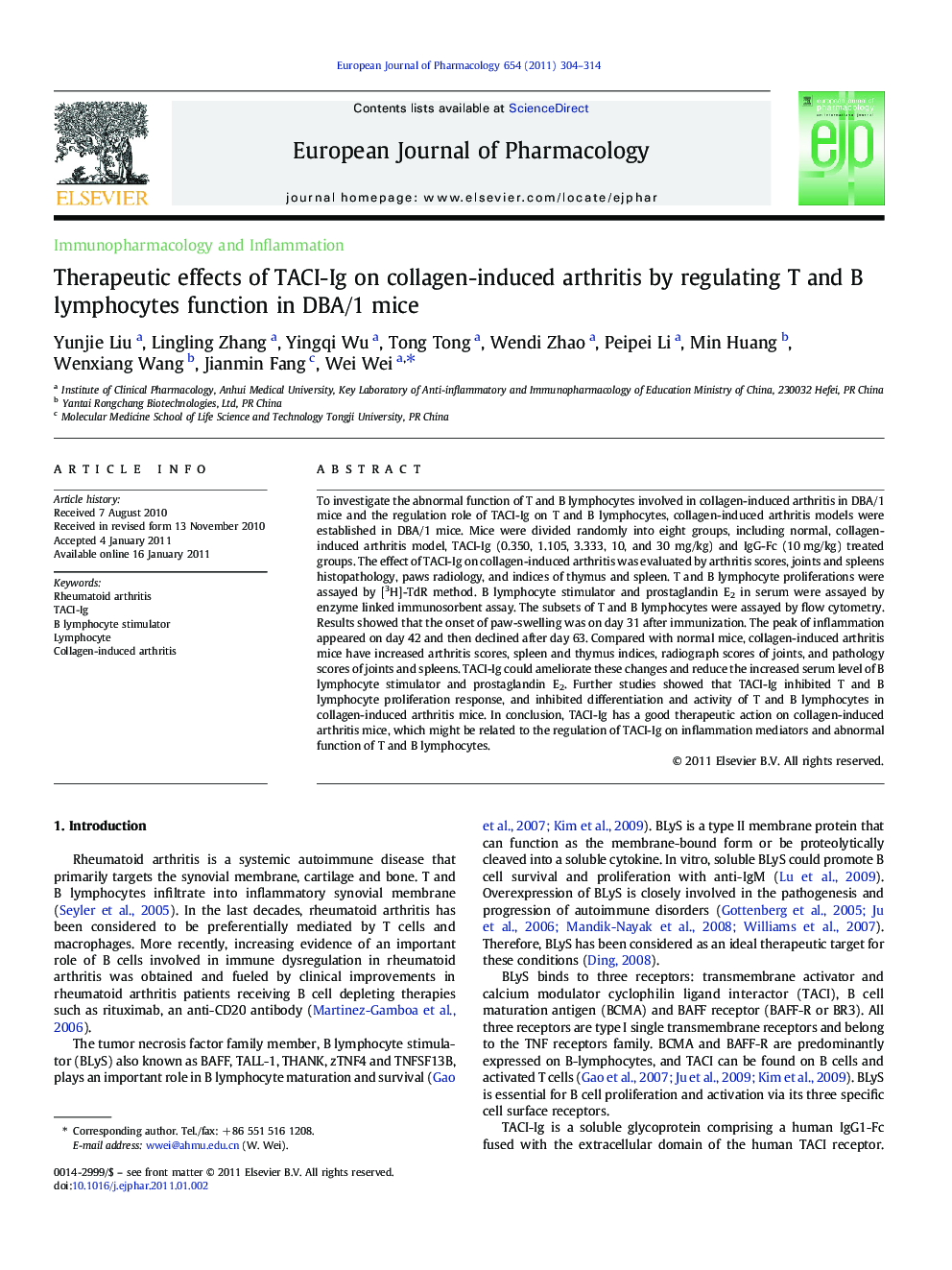| Article ID | Journal | Published Year | Pages | File Type |
|---|---|---|---|---|
| 2532981 | European Journal of Pharmacology | 2011 | 11 Pages |
To investigate the abnormal function of T and B lymphocytes involved in collagen-induced arthritis in DBA/1 mice and the regulation role of TACI-Ig on T and B lymphocytes, collagen-induced arthritis models were established in DBA/1 mice. Mice were divided randomly into eight groups, including normal, collagen-induced arthritis model, TACI-Ig (0.350, 1.105, 3.333, 10, and 30 mg/kg) and IgG-Fc (10 mg/kg) treated groups. The effect of TACI-Ig on collagen-induced arthritis was evaluated by arthritis scores, joints and spleens histopathology, paws radiology, and indices of thymus and spleen. T and B lymphocyte proliferations were assayed by [3H]-TdR method. B lymphocyte stimulator and prostaglandin E2 in serum were assayed by enzyme linked immunosorbent assay. The subsets of T and B lymphocytes were assayed by flow cytometry. Results showed that the onset of paw-swelling was on day 31 after immunization. The peak of inflammation appeared on day 42 and then declined after day 63. Compared with normal mice, collagen-induced arthritis mice have increased arthritis scores, spleen and thymus indices, radiograph scores of joints, and pathology scores of joints and spleens. TACI-Ig could ameliorate these changes and reduce the increased serum level of B lymphocyte stimulator and prostaglandin E2. Further studies showed that TACI-Ig inhibited T and B lymphocyte proliferation response, and inhibited differentiation and activity of T and B lymphocytes in collagen-induced arthritis mice. In conclusion, TACI-Ig has a good therapeutic action on collagen-induced arthritis mice, which might be related to the regulation of TACI-Ig on inflammation mediators and abnormal function of T and B lymphocytes.
